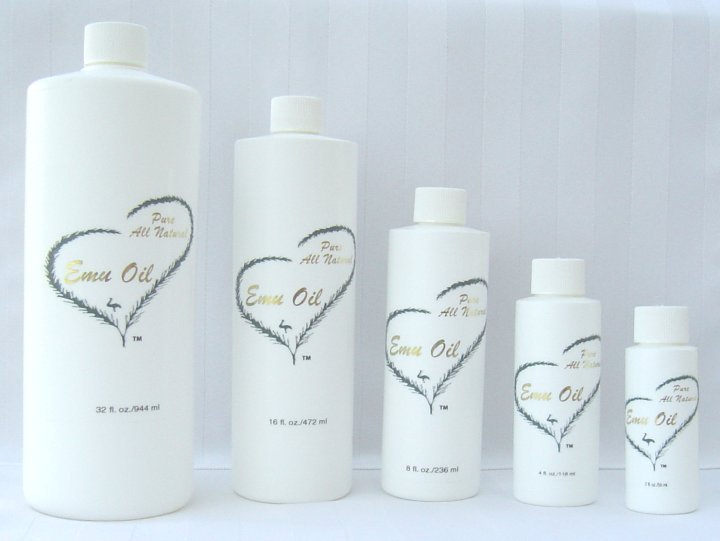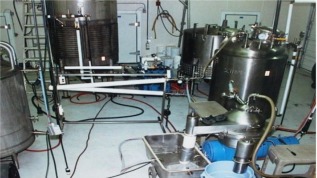Welcome To
Categories:
EmuOilDepot.com
*Online Since 1998
Emu Oil Catalogue

Home Page
Emu Oil Production
Emu Oil Products
Emu Oil Information
Emu Oil Body Care
Emu Oil Remedies
Emu Oil News
About Us
Disclaimer
Sitemap
Emu Oil Articles:
Hair Regrowth
Benefits Of Emu Oil
Best Emu Oil
Where To Buy Emu Oil
Hair Growth
Psoriasis
Scarring
Wrinkles
Emu Oil Uses
Why Use Emu Oil?
Skin Benefits

Click Here For A Short
Podcast From Ray
Video Of An Emu Oil
Refinery In Operation

What
The term "Organic" is widely used (over-used and loosely used), and sounds impressive, but its true meaning is misunderstood by most.
USDA Organic labels are showing up on more and more food items. Some say the words "organic" or "natural" are just buzz words that will soon disappear. Organic foods contain fewer mysterious preservatives with names that can't be pronounced, no unnecessary additives and no chemicals with unknown long-term effects, and organic is often just better tasting.
Foods bearing the value-added "USDA Organic" label, as well as the farmers who produce them, have gained the respect of health-conscious Americans.
What It Takes For A Farmer To Become Certified Organic
What organic really means according to Sean Mulla of the Montana Dept of Agriculture, the first ingredient for the farmer is the willingness to go forth and apply.
Farmers who are willing to make the transition must understand that this process is time-consuming and costly (see below for costs). While considering the conversion, it is essential to read and understand the standards and requirements as established in the National Organic Program (NOP).
The NOP program is an integral component of the Organic Foods Production Act of 1990, initiated by the USDA. In general, the Act establishes the national standards and practices for organic food production, handling, and commerce (the NOP). The Act also establishes the requirements for certifying agents, sets the requirements for state compliance, and lists the prohibited materials organic operations and handlers must avoid (such as growth hormones and synthetic pesticides).
Standards for livestock as well as crops are set within the NOP, including guidelines regarding inspections and even removal of an organic label due to non-compliance.
Requirements To Become Organic
Here is a scenario about what organic really means: Your farm is a recently acquired property that you wish to convert to a certified organic operation. The first requirement, after reading and understanding the NOP, is to ensure that no prohibited materials have been used on the property for three years. Since you only recently acquired the property, you would need a signed affidavit from the previous owners regarding their uses and practices.
If they used any prohibited materials (chemicals, etc), the correct changes must be made to make your property compliant, and then a three year waiting period of compliance must take place. During that time, you must construct an Organic Systems Plan according to the NOP, which will later be reviewed by a certifying agent.
One daunting but necessary task is record keeping. Sean Mulla, during his AEP class at the 2007 AEA Convention, could not stress enough how important it is to document everything that happens or is implemented on your farm.
From field maps to buffer zones (areas between a certified organic production operation and those that are not organically managed), use of manure, bedding, fencing materials (whether or not they contain arsenic), to living conditions, vaccinations and medications, to soil, "the very ground livestock stands on must be certified" according to Sean.
What organic really means is that your product then goes to a processor and that "handler" must also be "organically compliant" according to NOP regulations.
Costs To Become Organic
The costs to become organic are based on gross sales. For example, a farm that generates less than $20,000.00 per year pays a fee of around $165.00. A farm that generates more than $100,000.00 per year pays a fee of around $300.00. Plus, there are fees for the yearly inspection which often includes mileage fees, etc.
The OFP act of 1990 declares that these procedures are in place "to assure consumers that organically produced products meet a consistent standard."
Now you know what organic really means.
For the complete content of the National Organic Program, visit:
http://www.ams.usda.gov/nop/archive/ofpa.html
Source: ET&T
Emu Oil Depot
23853 C.R. 114
iola, Texas 77861
1-877-968-6878
Disclaimer


